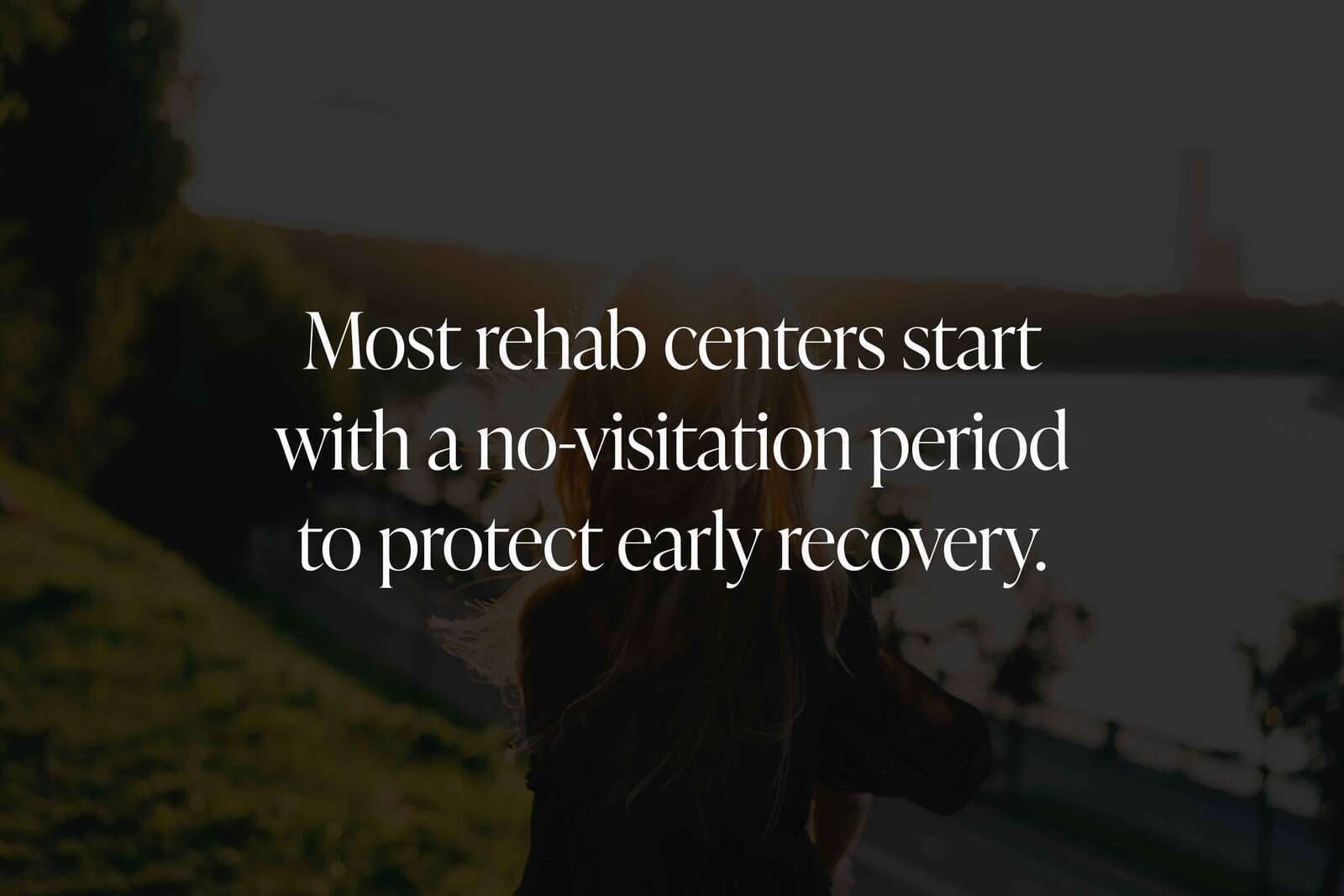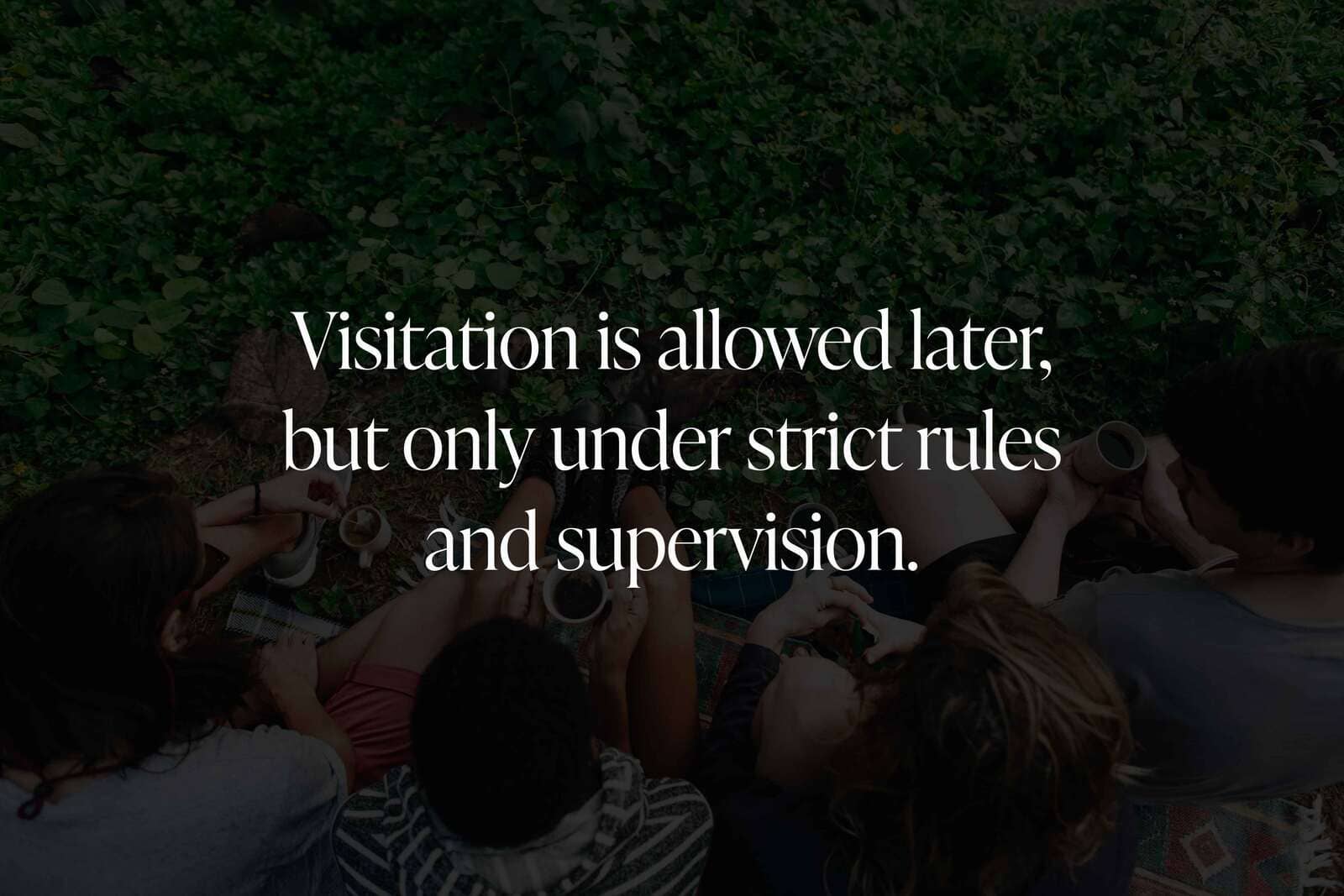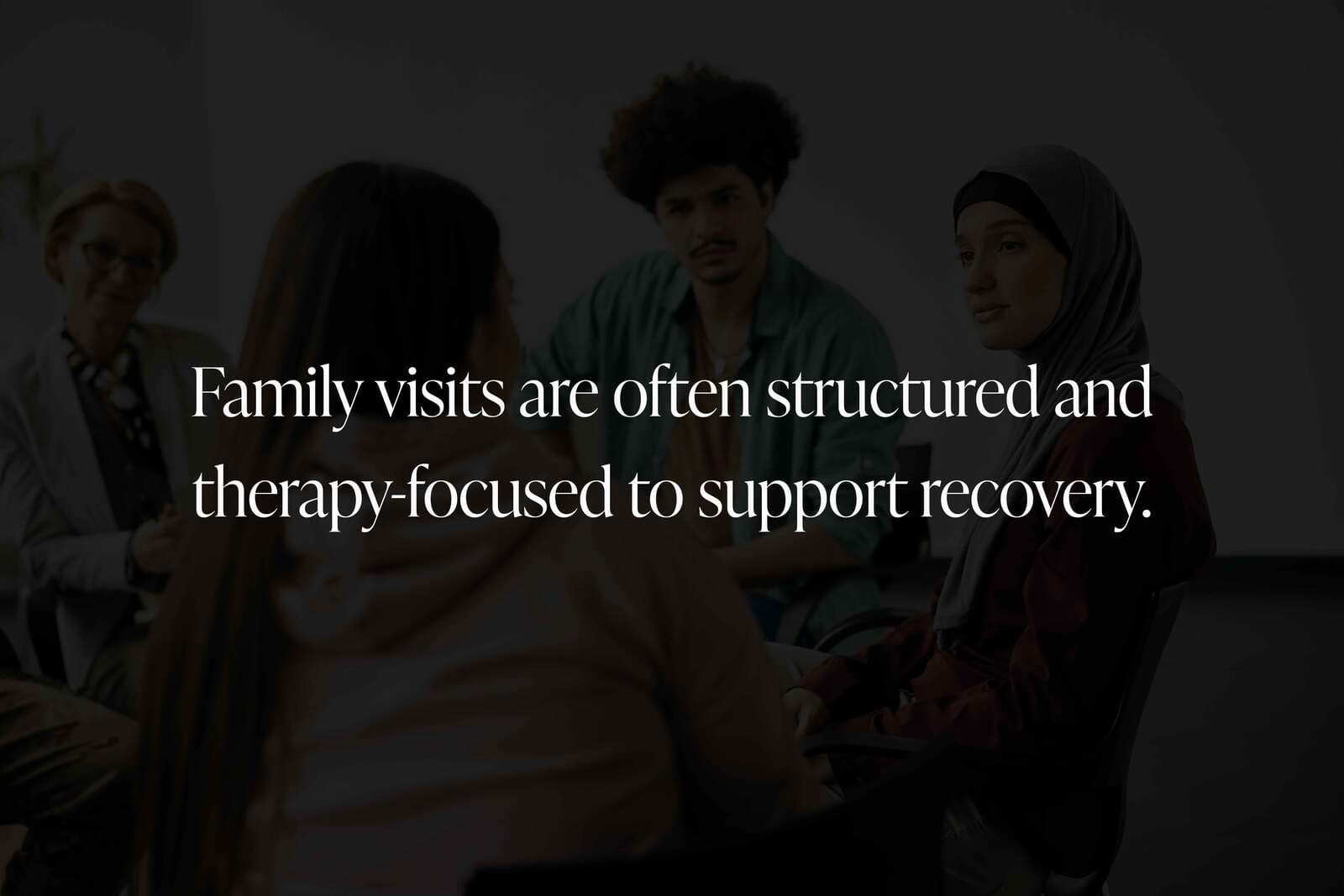Table of Contents
Rehab centers in Los Angeles implement structured visitation rules to support a stable, therapeutic environment while allowing meaningful connection with loved ones. These policies vary by facility but often follow a common framework based on the phase of treatment, patient progress, and clinical recommendations.
Why Are Visitation Rules Important?
Early in recovery, patients are emotionally vulnerable and adjusting to a new routine. Visitation restrictions are essential to:
- Minimize outside triggers during detox and stabilization
- Promote focus on personal healing
- Prevent the influence of unhealthy relationships
- Provide staff time to assess readiness for social interaction
Most residential programs in Los Angeles begin with a “blackout period” where no visits are allowed—typically lasting the first 7 to 14 days.

Common Visitation Guidelines in Los Angeles Rehab Facilities
Although each treatment center may customize its policy, here are the standard rules observed across many Los Angeles rehabs:
Pre-Approval Required
- All visitors must be approved by clinical staff in advance
- Background checks or screenings may be required for visitor safety
Scheduled Visitation Windows
- Visits often take place on weekends, during designated time blocks (e.g., 1:00 p.m. to 4:00 p.m.)
- Patients may have limited visits per week, depending on progress
Supervised or Monitored Visits
- Some facilities require visits to occur in communal areas under supervision
- Private visits may be permitted later in the program, based on patient stability
Behavioral Expectations
- Visitors must comply with dress codes, language guidelines, and behavior expectations
- Disruptive or triggering behavior can result in loss of visitation privileges
Restricted Items
- No drugs, alcohol, vapes, or medications allowed
- Some centers also prohibit food, electronics, or gifts unless approved

When Do Rehab Centers Allow Visits?
Generally, visitation is allowed after the first 1–2 weeks, once a patient has:
- Completed detox (if applicable)
- Reached a stable emotional baseline
- Participated consistently in therapy sessions
- Expressed interest in receiving visitors
Special Considerations for Family Visits
Many luxury rehab centers in Los Angeles incorporate family weekends, therapy sessions, and educational workshops into their visitation policies. These are designed to:
- Rebuild family trust and communication
- Educate families about addiction and relapse prevention
- Prepare for post-treatment reintegration
To learn more about how these features work in a real-world setting, visit a trusted luxury rehab in Los Angeles that offers personalized family support services.

Can Visitation Be Denied?
Yes. Rehab centers may deny visits for reasons such as:
- Patient relapse or disciplinary issues
- Inappropriate behavior by previous visitors
- Disruptive family dynamics not yet addressed in therapy
- Legal or safety concerns involving the visitor
Patients can often appeal these restrictions by demonstrating progress and working with their care team.
What If You Can’t Visit in Person?
If physical visitation isn’t possible, many facilities offer:
- Video conferencing
- Phone calls during specific hours
- Letter writing or email (if approved)
These options are particularly helpful for out-of-state families or high-risk medical scenarios.
How Do Visitation Rules Connect to the Recovery Process?
Understanding the limits and goals of visitation can improve patient outcomes and reduce unnecessary emotional strain. Here are related insights from other areas of the recovery process:
Can You Visit Someone in Rehab in Los Angeles?
Yes, but only after certain criteria are met. Visits are a privilege that must align with therapeutic progress. Always contact the rehab center directly to confirm their specific policy.
Where Can Families Get Support During Rehab in Los Angeles?
Even without in-person visits, families can access therapy, workshops, and peer support groups that help them process their emotions and develop healthy communication habits.
How Do Outpatient Programs Work in Los Angeles?
Outpatient clients usually live at home and are free to interact with friends and family. These programs have fewer visitation restrictions but still encourage setting healthy boundaries during recovery.











